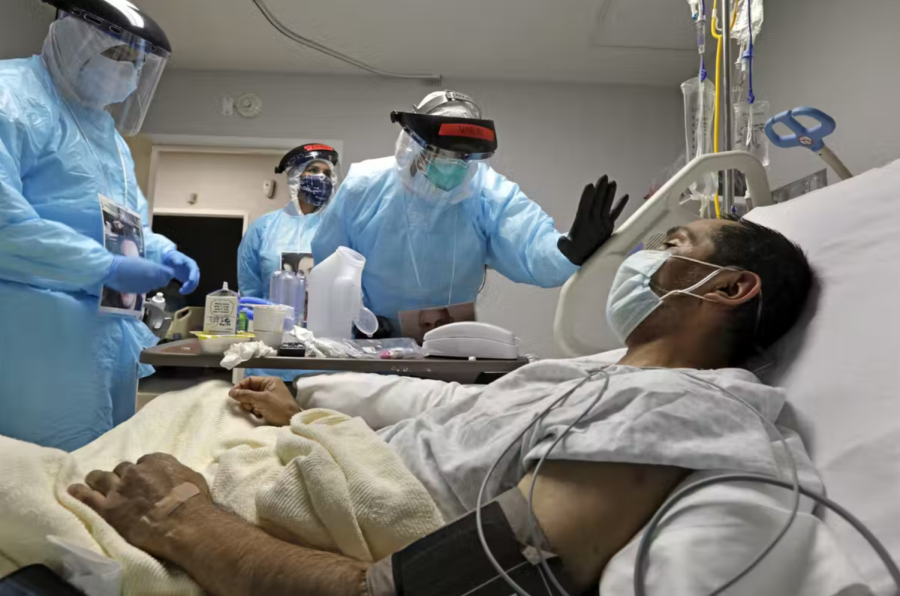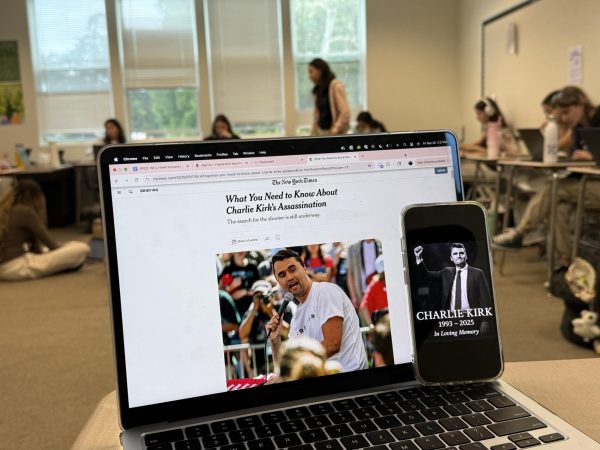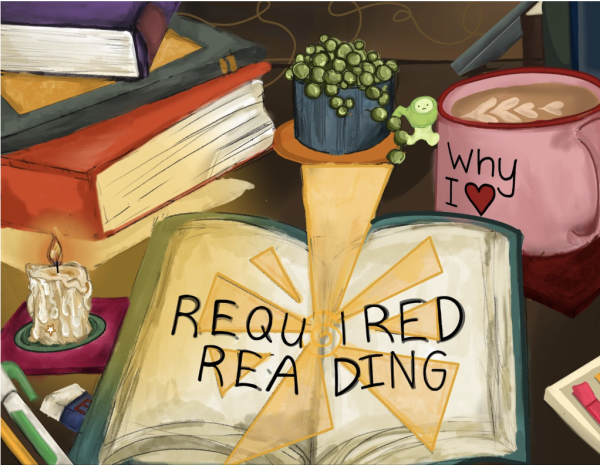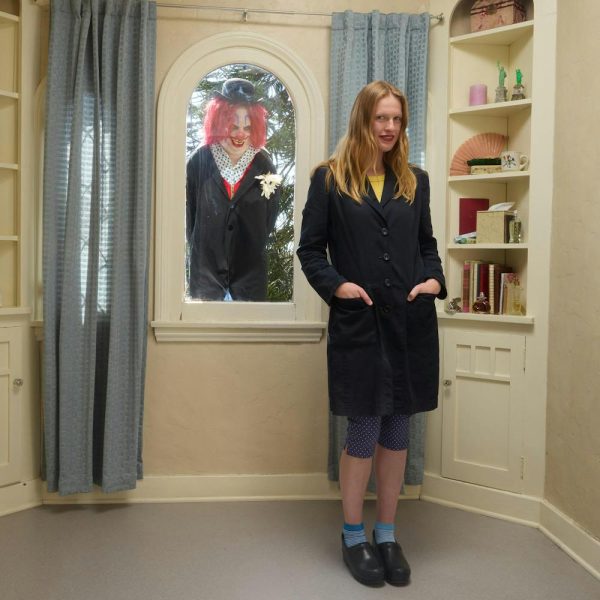Opinion: COVID-19 Stigma: What It Is and How It’s Dangerous to the Pandemic
Christine Hutchinson explained to The Chicago Tribune that her nose began to feel sniffly on the second day of her family’s holiday trip. At first, Christine thought nothing of it, but when others she was traveling with began to feel sick, she decided to get tested. Despite the steps Christine, a mother of two, took to remain cautious on her trip, her COVID-19 test came back positive. As Christine quarantined in another country during early January, she grappled with the guilt of possibly infecting others and ruining the trip for others.
“I’m like, ‘How many people did I get sick?’” she said in an interview with The Chicago Tribune. “Did I get somebody else sick at the airport?”
Even if an individual is fully vaccinated and follows public health recommendations such as wearing a mask and avoiding crowded areas, there is always a possibility of exposure to the highly-contagious virus. As transmission rates continue to soar due to the Omicron variant, a large handful of those who test positive for COVID-19 are taking the necessary precautions to remain safe. But taking the necessary precautions is sometimes not enough to avoid the virus.
“You know what? You’re probably going to get COVID,” Robert French, a professor of pediatrics and director of the Vaccine Research Center at the Cincinnati Children’s Hospital, stated recently in an interview with The Washington Post.
He explained that most vaccinated individuals who catch the coronavirus do not become seriously ill. “What they’re having is a cold.”
With surging cases comes an increase in feelings of shame and guilt among those sick with the virus. Infected individuals may blame themselves for getting exposed to the virus and/or possibly exposing others, with thoughts along the lines of “I did this to myself” or “I should have been more careful.”
However, the stigma surrounding COVID-19 is not only perpetuated by infected individuals themselves but also by others. Fear of embarrassment from friends, family members, coworkers, classmates all contribute to the feelings of immense shame that some with the virus experience.
“Several patients with COVID-19 have struggled with feeling excessive guilt as if they did something wrong, even if they followed all the recommendations to stay safe,” said Sheehan Fisher, a psychologist and assistant professor of psychiatry and behavioral sciences at Northwestern University Feinberg School of Medicine, in an interview. “They start to second guess themselves about their choices and decision making and worry about what others will think of them.”
While the stigma around COVID-19 seems innocuous, shaming and blaming can lead to avoidable spread of the virus. When infected individuals are reluctant to inform others that they have been exposed to COVID-19, the virus only continues to spread. The stigma leads to individuals disregarding public health guidelines in order to prevent feelings of embarrassment and shame.
It is important to understand that with public health guidelines constantly changing due to drops and spikes in cases, an activity that was considered safe by public health officials a week ago may be deemed as unsafe now.
Aline, a graduate student in Ohio, has taken every necessary precaution during the pandemic to protect herself and her loved ones against the coronavirus. Before traveling for the holidays, Aline took a COVID-19 test that came back positive. Her positive test result not only sparked stress but also guilt.
“I feel very embarrassed and dumb,” she told The Washington Post. “It’s eye-opening that I feel so much shame from it. I’m realizing how much judgment I was secretly harboring against people who got it before.”
Though there is no one reason why a positive COVID-19 test leads to feelings of guilt, the natural response of humans to think about why something is the way it is can be responsible. When an individual strives to understand why or what exact moment led to their exposure to the virus, negative feelings follow.
Additionally, for many individuals with the virus, guilt comes with knowing that they infected others.
Pauline Brantley is vaccinated and often wears N-95 masks for the best protection. Though she is uncertain about where she picked up the virus, she knows for a fact that her three children and husband got the virus from her.
“I didn’t really have a fever, but the kids all had fevers and they were really just miserable. So once I saw them suffering, I felt worse than I did before,” she explained to AARP.
Assuming that those with the coronavirus are ill due to taking “risks,” though a natural response, is unreasonable. Each individual and household has different circumstances that affect their involvement in “riskier” activities. For instance, frontline workers have a higher chance of being exposed to the virus than those who can easily stay home and avoid high-risk places.
Though the stigma around the coronavirus is new, stigma has surrounded certain health issues for much longer. For example, some suspect that those with heart medical conditions eat unhealthily. When stigma surrounds health problems, issues inevitably arise.
The judgment that follows a positive COVID-19 test, from both the individual and others, needs to be replaced with a more supportive response, such as “I appreciate you letting me know about your exposure.” Most individuals are following public health recommendations to keep themselves and their loved ones safe. We also can encourage each other to leave behind the stigma surrounding COVID-19, as the taboo that follows a positive test result only exacerbates the pandemic. While our response to raises in COVID-19 cases can be cautious and concerned, our social response to positive tests from others should be one of support.

Sophene is a senior and in her sixth year on Spyglass. In her free time, she enjoys baking, spending time with family, and watching Gilmore Girls and Friends.




























![Dr. Zanita Kelly, Director of Lower and Middle School, pictured above, and the rest of Westridge Administration were instrumental to providing Westridge faculty and staff the support they needed after the Eaton fire. "[Teachers] are part of the community," said Dr. Kelly. "Just like our families and students."](https://westridgespyglass.org/wp-content/uploads/2025/03/dr.-kellyyy-1-e1748143600809.png)



























